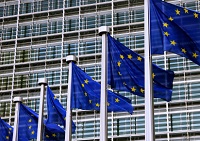Brussels bears the impressive reputation of being the de facto capital of Europe. This modern and cosmopolitan city is the abode of the institutions of the European Union and is the home of many diplomats, politicians and civil servants. The city’s place in global politics may be known the world over, but how much do we know about day-to-day life in Brussels? Here are some helpful insider tips for expats who will be making this city their new home.
1. Live like the locals
If you are looking for a uniquely Brussels experience, then St Gilles is where you should set up your home. This commune is a favorite among expats who work at the international companies in the area.St Gilles has a bohemian character with its art nouveau homes and immigrant quarters. Properties can be found at affordable prices and there is a lot to do here such as exploring the many galleries, cinemas and relaxing in the Turkish baths.
2. Comic culture
Brussels is serious about its comics and this is evident in the many comic strip murals sprawled across the city walls. Those who love this art form must visit the Belgian Comic Strip Center, which was restored in the 80s and remains wonderfully maintained. Delve into the history of Belgian comics and also learn some interesting things about the comic creation process. Of particular interest to many overseas visitors is the ‘Museum of the Imaginary’, which tells the story of the beloved comic character, Tintin, created by the Brussels-born Hergé.
3. Blend at Cefé Belga
Belga, located at the cultural melting pot of Place Flagey, is a must-visit for expats because it enables you to mingle with other expats and also get to know the locals. A hugely popular spot in Brussels, it is open throughout the day. It can get crowded at times, but visiting Belga is sure to give you a taste of real life in the city.
4. Learn some basic Dutch
There are three official languages in Belgium, but Dutch is the most commonly spoken one in Brussels. But don’t be intimidated; the city is after all the capital of Europe and English is widely spoken. But like in many other countries, language is an integral part of the culture and even a basic understanding of Dutch can help you learn more about the city and its lifestyle.
5. Don’t miss the mussels season
Mussels season in Brussels is September to December, during the autumn. It also sometimes occurs during January and February. Throughout this time, it is imperative to sample the city’s famous dish of steamed mussels. There are many restaurants and cafes that serve the dish only when it is in season, so you know it’s going to be fresh and delicious!
6. Have the dagschotel
Restaurants offer a special lunchtime meal called dagschotel, which is great value for money. The many café-bars across the city are inexpensive places to eat. In Wallonia especially, these little eateries offer excellent fare and the portion sizes are wholesome.
7. Leave a tip
Your restaurant bill will have the service tax at 16 percent and VAT at 12 percent included, but it is still considered polite to leave an extra tip of about 10 percent if you are impressed by the service.
8. Carry some change
Remember that in you are required to pay a charge to enter any of the public toilets and also the ones in some fast food restaurants. The charge could be somewhere between 35 to 50 cents. At some cafés, even customers must pay to use the restroom.
9. Rely on the night-bus
Noctis is the special night bus service ideal for those returning home after a late night of socializing. It runs on Fridays and Saturdays between 12am to 3am. There is a bus that departs every half an hour. Look for the Noctis sign on bus stops, which indicates that these stops offer the night bus service.
10. Expatriate tax allowance
Check with the tax authorities to know if you qualify for a tax-free allowance provided to expats. This allowance will enable you to take care of extra expenses that crop up as a result of your relocation such as travel, housing costs and school fees.

